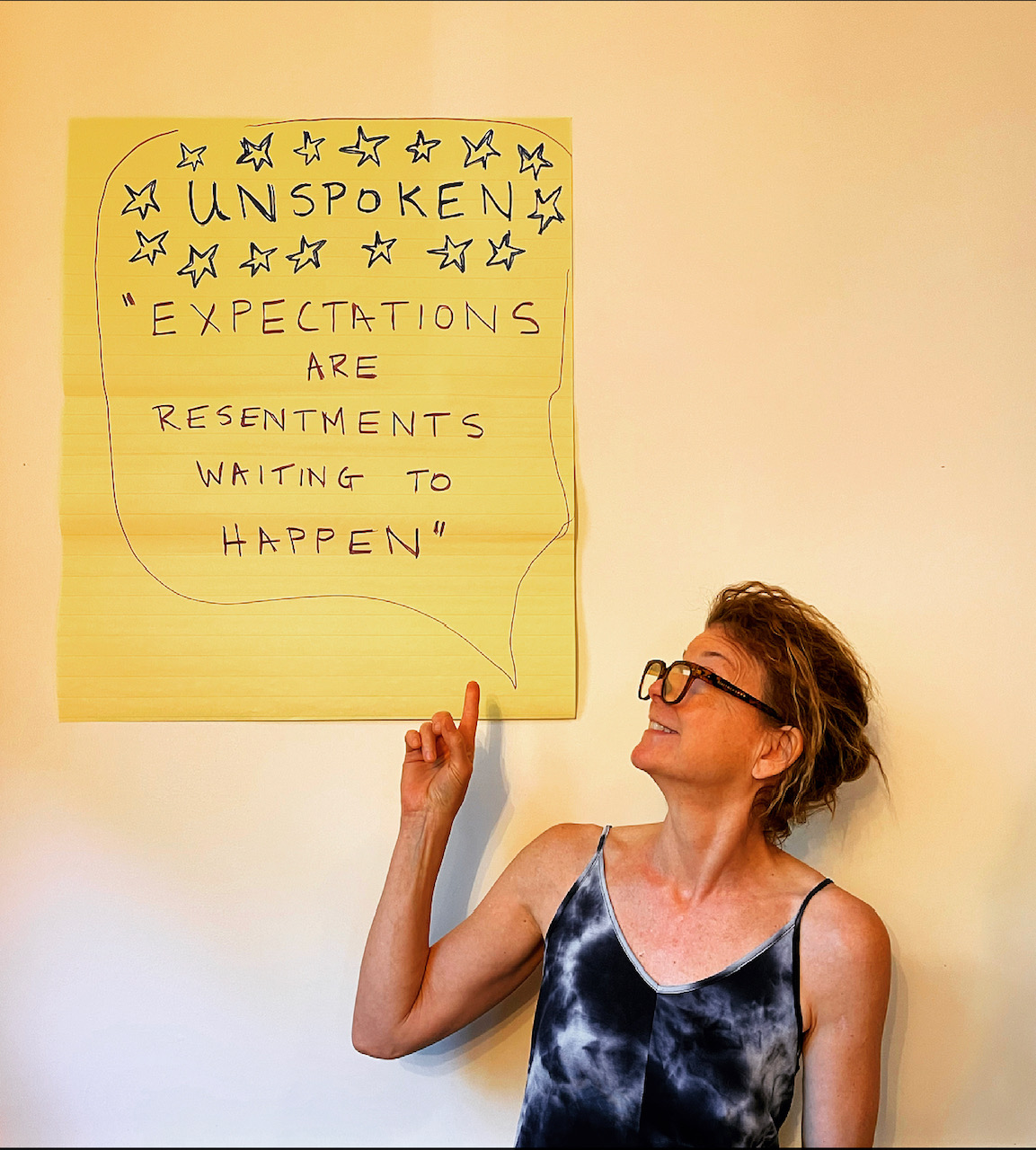
Many of us have heard the phrase, “Expectations are resentments waiting to happen.” and this is certainly true if they are unspoken.
(Should you doubt me, don’t articulate your expectations regarding holidays/family gatherings/vacations to your partner; or leave your colleagues in the dark about your thoughts on punctuality/meeting deadlines/vacation scheduling….
Trust me. Resentment will abound.)
So when—and how—can you make expectations work for you?
Here’s an example:
Recently, a client needed to alert a colleague to a situation at work and be sure that colleague would keep things confidential. What to do?
My advice was to word the email as follows:
“As you can imagine X is a delicate matter. I am telling you because I trust your discretion.”
Stating the expectation of discretion made her colleague want to be that for her.
Still unsure? Here’s another example:
I have a client with a longtime grievance about how is supervisor manages scheduling. When I checked in with him a few weeks ago about how things were going he said, “He’s actually managed to get it right these past weeks.”
“OK,” I said, “Did you thank him profusely so he wants to continue to be that person for you?”
He hadn’t—but he did—and surprise, surprise, his scheduling continues to make his heart sing.
Given these examples, my personal change to the above quote would be, “Unspoken expectations are resentments waiting to happen.”
So when you have them (& we all do) think through how to articulate them and then pipe up because—in my experience—most people want to live up to our expectations when they know what they are.
For more on the value of expectations, take a look at, “The Loneliness of Low Expectations – and the Joy of Sky-High Ones”
